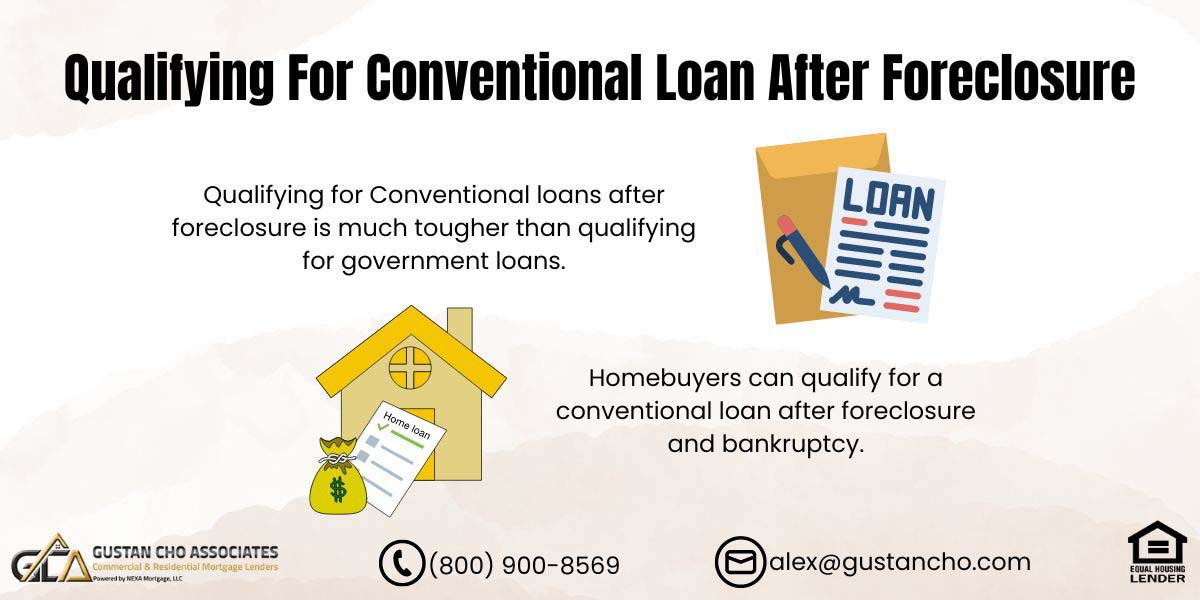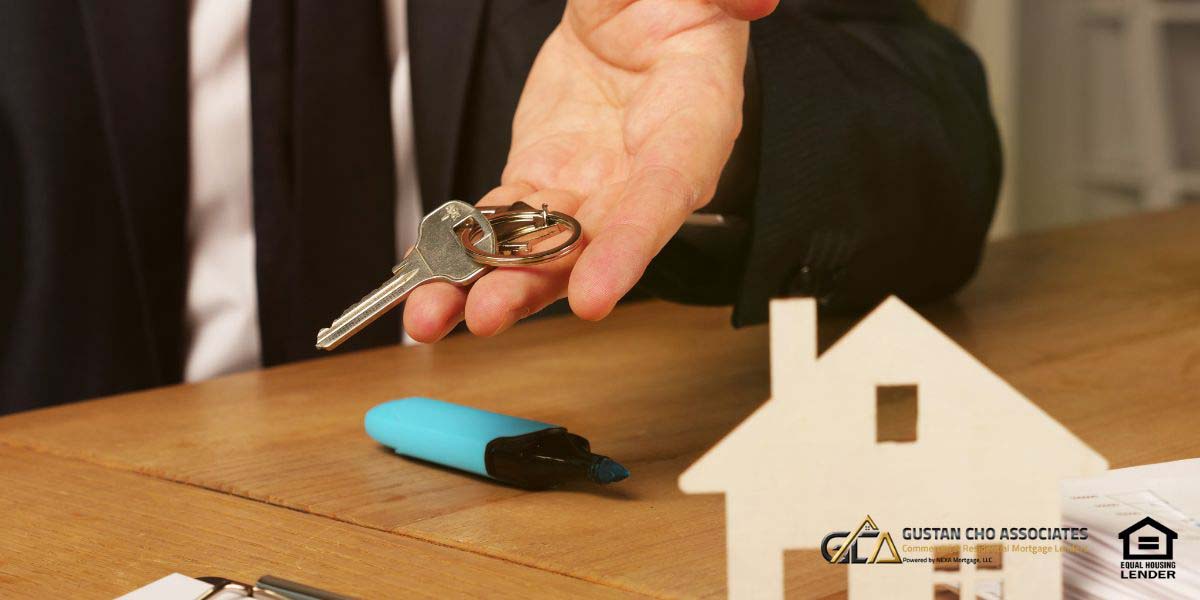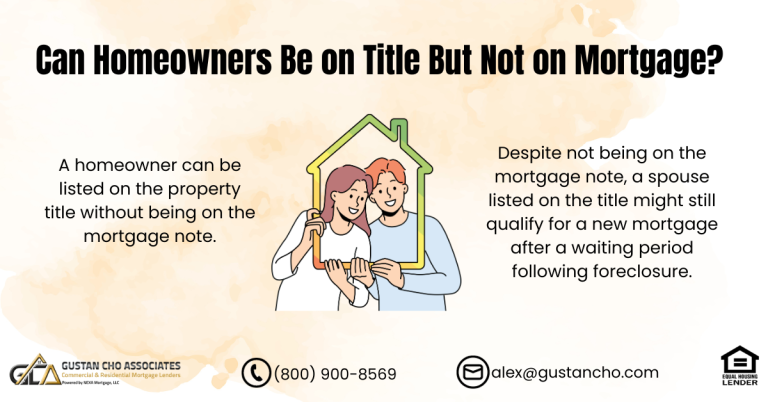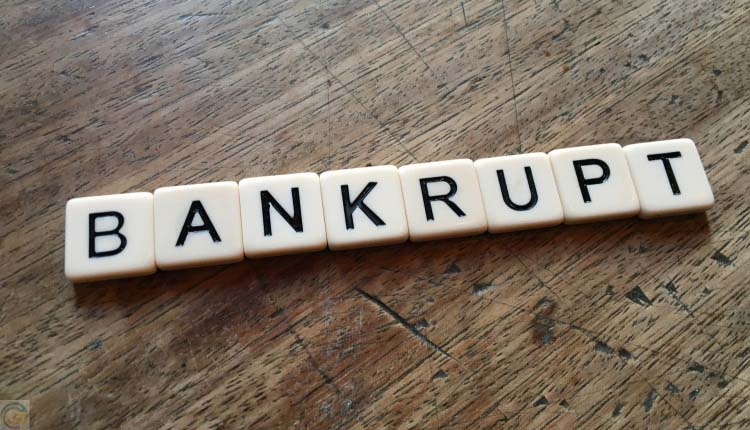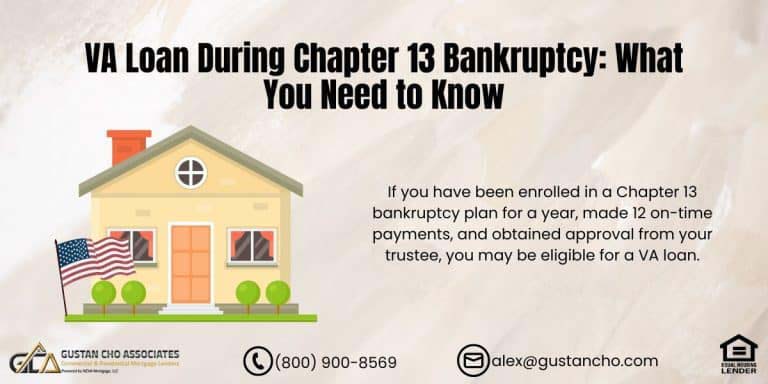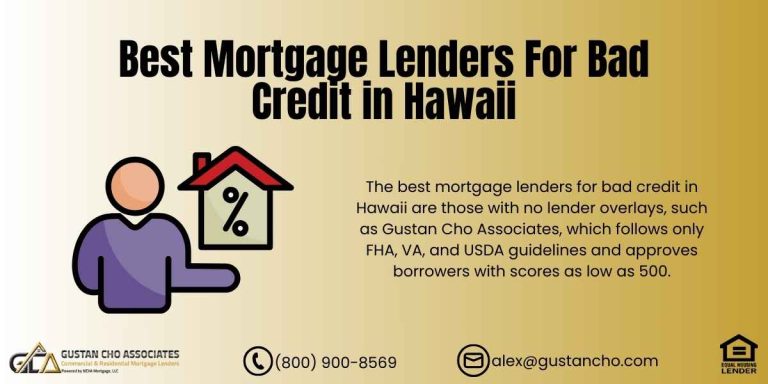Qualifying for a conventional loan after foreclosure presents more challenges than government loans. However, homebuyers can qualify for a conventional loan after experiencing foreclosure and bankruptcy.
There are specific waiting period requirements that must be met. To qualify for a conventional loan post-foreclosure, borrowers must have a minimum credit score 620. Additionally, debt-to-income ratios can be at most 50% DTI, and borrowers must demonstrate timely payments for the past 12 months without any late payments.
Gustan Cho Associates can provide valuable assistance and guidance throughout this complex process, ensuring you secure the best possible mortgage loan product tailored to your situation post-foreclosure. If you have faced foreclosure and are now in the market to purchase a new home, it’s crucial to rebuild your credit and enhance your chances of mortgage approval.
Fannie Mae And Freddie Mac Guidelines on Qualifying For Conventional Loan After Foreclosure
Qualifying for a conventional loan after foreclosure involves several factors. Fannie Mae and Freddie Mac allow the addition of non-occupant co-borrowers to conventional loans. This feature can benefit borrowers seeking to qualify for a mortgage post-foreclosure. This option expands the pool of eligible applicants and can improve the chances of loan approval.
First-time homebuyers, including those who have experienced foreclosure, may qualify for a conventional home purchase loan with a 3% down payment. This opportunity provides a pathway for individuals to re-enter the housing market after a foreclosure event.
Conventional loan programs are versatile and can be used for various property types, including single-family homes, condominiums, and two to four-unit properties. This flexibility allows borrowers to consider various property options that suit their needs and investment goals, even after experiencing foreclosure.
Yes—You Can Qualify for a Conventional Loan After Foreclosure
Find out the required waiting period and what steps you need to take to get approved.
What Type of Loan is a Conventional Loan?
A conventional loan is a mortgage type that doesn’t have government backing, unlike FHA or VA loans. Private lenders, including banks and mortgage companies, offer these loans according to the standards established by Fannie Mae and Freddie Mac, who acquire and consolidate mortgages.
Conventional loans usually necessitate a higher down payment, ranging from 3% to 20% of the house’s purchase price. If borrowers have a down payment below 20%, they may be required to pay for Private Mortgage Insurance (PMI). Additionally, a minimum credit score of 620 to 700 is usually required.
Conventional loans have fixed loan limits and offer various terms, including fixed-rate and adjustable-rate options. They are suitable for primary residences, second homes, and investment properties. While they provide flexibility, they demand stronger credit profiles and larger down payments than government-backed loans, making them attractive to borrowers looking for competitive rates and a wider range of mortgage options.
What is the Difference Between a Conventional Loan and a Portfolio Loan?
The primary distinction between conventional and portfolio loans lies in how lenders manage these loans post-funding, especially concerning Qualifying For Conventional Loan After Foreclosure. Conventional loans are typically sold to government-sponsored entities (GSEs) like Fannie Mae or Freddie Mac, following standardized guidelines set by these entities regarding loan limits, down payment thresholds, and credit score benchmarks.
This practice allows lenders to transfer the risk of loan default to the GSEs, freeing up resources for further lending. In contrast, the lender retains portfolio loans in-house, providing more flexibility in eligibility criteria and loan terms, including those Qualifying For Conventional Loan After Foreclosure. This flexibility can benefit borrowers with unique circumstances who may need to meet conventional loan standards despite past foreclosure events.
However, because lenders retain the risk associated with portfolio loans, they may impose stricter underwriting requirements or higher interest rates for borrowers deemed higher risk, even for those Qualifying For Conventional Loan After Foreclosure.
Waiting Period In Qualifying For Conventional Loan After Foreclosure
Unfortunately, qualifying for a conventional loan after foreclosure entails a waiting period of seven years from the recorded foreclosure date. It’s essential to note that the recorded date, not the date of key surrender or completion of foreclosure paperwork, initiates this waiting period.
The recorded foreclosure date is determined by either the sheriff’s sale date or the deed transfer from the homeowner to the lender or a new buyer. The county recorder of deeds office must officially document and stamp this transfer.
Sometimes, homeowners mistakenly assume that surrendering keys and vacating the property concludes the foreclosure process. However, if the transfer of ownership is recorded years later, the waiting period for qualifying for a conventional loan after foreclosure has yet to commence.
Qualifying For Conventional Loan After Foreclosure Part In The Bankruptcy
After being discharged from Chapter 7 Bankruptcy, homeowners with mortgages who have gone through foreclosure should wait four years to become eligible for a conventional loan. It’s essential to understand that this waiting period isn’t based on the foreclosure’s recorded date but on the bankruptcy discharge date, even if the foreclosure happened after the bankruptcy discharge.
Some lenders may require assistance from a housing counselor or an accredited credit counseling agency as part of the process to Qualify For a Conventional Loan After Foreclosure or bankruptcy. This proactive step helps manage finances better, especially concerning mortgage applications post-foreclosure or bankruptcy.
Individuals can gradually improve their creditworthiness and become eligible for a loan by taking such measures.
Fannie Mae published a new guide on March 6, 2024, affecting Qualifying For a Conventional Loan After Foreclosure. This updated standard has widened opportunities for homebuyers who included their mortgage in bankruptcy proceedings. It’s worth noting that mortgages cannot be reaffirmed after bankruptcy, and this guideline applies to both Chapter 7 and Chapter 13 Bankruptcy cases.
Qualifying For Conventional Loan After Foreclosure Versus Deed-In-Lieu Of Foreclosure
When qualifying for a conventional loan after foreclosure, there are distinct differences in waiting periods compared to FHA loans. Foreclosures and deeds-in-lieu of foreclosures are treated equally by the FHA. If you’ve experienced foreclosure or deed-in-lieu of foreclosure, you may wonder about your eligibility for an FHA or conventional loan.
It’s important to note that for an FHA loan, a waiting period of three years is required from the recorded date or the date of the sheriff’s sale. On the other hand, a waiting period of four years is required for a conventional loan after a deed-in-lieu of foreclosure, starting from the recorded date of the deed-in-lieu of foreclosure. Seeking advice tailored to your situation will help you navigate the process effectively.
How Long Do You Have to Wait After a Foreclosure?
We’ll help you understand Fannie Mae and Freddie Mac guidelines—plus how to requalify faster.
Waiting Period Qualifying For Conventional Loan After Short Sale
To qualify for a conventional loan after a short sale, there is a four-year waiting period from the date of the short sale, reflected from the date of the HUD Settlement Statement of the short sale. After a short sale, there is a three-year waiting period to qualify for FHA loans. VA requires a two-year waiting period after a short sale.
USDA requires a three-year waiting period. Most Jumbo lenders require a 7-year waiting period after foreclosure, deed-in-lieu of foreclosure, short sale, and bankruptcy. However, Gustan Cho Associates has non-QM loan programs with no waiting period after bankruptcy, foreclosure, deed-in-lieu of foreclosure, or short sale.
Qualifying For Conventional Loan After Foreclosure Versus Government Loans
If you’re interested in qualifying for conventional loan after foreclosure and bankruptcy compared to government loans, it’s important to be aware of the eligibility criteria. Different policies are implemented by lenders when it comes to waiting periods for qualification.
Conforming loans allow qualification after four years from a deed-in-lieu of foreclosure or short sale. FHA and USDA have a three-year waiting period post-foreclosure, deed-in-lieu, or short sale. Meanwhile, the VA mandates a two-year waiting period following Chapter 7 Bankruptcy, foreclosure, deed-in-lieu of foreclosure, or short sale.
Seeking advice tailored to your situation will help you navigate the process effectively.
What Are the Waiting Period Guidelines Qualifying For Conventional Loan After Foreclosure
There is a seven-year waiting period after a standard foreclosure to qualify for conforming loans. Government loans do not have different waiting period requirements after foreclosure versus deed-in-lieu or short sale. There is a four-year waiting period to qualify for conforming loans after the Chapter 7 Bankruptcy discharge date.
There is a two-year waiting period after the Chapter 13 Bankruptcy discharge date to qualify for conforming loans. VA and FHA allow borrowers in a Chapter 13 Bankruptcy repayment plan with Trustee Approval via manual underwriting. VA and FHA do not require any waiting period to qualify after the Chapter 13 Bankruptcy discharge date.
Any VA or FHA Loans with less than 2-year seasoning after the Chapter 13 Bankruptcy discharge date needs to be downgraded to manual underwriting. There is a four-year waiting period after the Chapter 13 Bankruptcy dismissal date to qualify for conforming loans.
Home-Buying Process with a Previous Foreclosure on Your Record
Are you feeling discouraged about the home-buying process because of a previous foreclosure on your record? Don’t worry; you’re not alone. Many potential buyers have gone through the same experience and successfully navigated to becoming homeowners again.
In this blog post, we’ll explore some tips and strategies for overcoming the obstacles of a past foreclosure so you can confidently move forward in your home-buying journey. So let’s dive in!
Get Back Into Homeownership After Foreclosure
Rebuilding credit? Meeting the waiting period? We’ll guide you every step of the way.
What is Foreclosure of Mortgage and its Requirements?
Understanding the foreclosure process is crucial when considering qualifying for conventional loan after foreclosure and planning to repurchase a home. Being prepared for what to expect is essential, especially since the process can vary depending on the state of residence.
In some states, foreclosures are managed through the court system, while others follow non-judicial procedures. Regardless of the method, the lender initiates the process by issuing a notice of default, signaling that the borrower has missed mortgage payments and foreclosure proceedings are commencing.
In states where foreclosures go through the court system, borrowers receive a summons and complaint, indicating that the lender has filed a lawsuit seeking permission to foreclose on the property. Responding within the specified timeframe is critical; failure may result in a court judgment allowing the foreclosure to proceed.
For states with non-judicial foreclosures, the lender sends a sale notice informing the borrower that the property will be auctioned publicly. If no buyers emerge, the lender gains ownership of the property.
After foreclosure, the event remains on the borrower’s credit report for seven years, potentially complicating future loan applications. This underscores the importance of understanding the foreclosure process and its long-term implications on financial standing.
Credit Score Impact of a Previous Foreclosure
Consider how this affects your credit rating if you have been in foreclosure. A foreclosure going on to your credit report can make a big difference. A foreclosure can last up to seven years, meaning you may lose as much as 100 points from your credit rating. Nevertheless, over time foreclosure will have an immaterial effect on your score.
The negative effects are going to be significantly smaller after three years than they were in the first year. To move forward to improve your future of getting approved for a mortgage if you are trying to buy a home again after a foreclosure, you should keep all of your bills current and make all of your payments on time.
Also, you should pay off debt and maintain a good credit history to boost your credit score. Speak to a lender or mortgage broker about your options and shop around.
How to Rebuild and Regain Your Credit After a Foreclosure
To rebuild your credit after a foreclosure, you need to obtain a copy of your credit report and look at it. The credit report should contain information from all three major credit bureaus. You should check for any errors and dispute them if necessary. Be sure and check with your lender concerning disputes before moving forward.
Once you have a clean credit report, you’ll need to start working on re-establishing your credit history. You can apply for a secured credit card from possibly a bank or become an authorized user on someone else’s credit card account. Using your credit responsibly and making timely payments will help you build your credit score.
How Long Do I Have To Wait After Foreclosure To Qualify For Conventional Loans
Several government-backed programs can help you obtain financing when you cannot move forward to qualify for a traditional mortgage loan. The Federal Housing Administration (FHA) offers loans to borrowers with less-than-perfect credit, and the Veterans Administration (VA) has a program specifically for veterans who have experienced foreclosure.
Following these essential steps can improve your chances of buying a home after foreclosure and rebuilding your credit.
Can I Get a Conventional Loan With a Foreclosure on My Credit Report
If you’re looking to buy a home after a foreclosure, there are some things you’ll need to do first to rebuild your credit. You can begin by getting a copy of your credit report and paying any outstanding debts. You’ll also need to ensure you’re current on all your bills and have a good payment history.
Once you have finished that, you can begin rebuilding your credit score. You can do this by hiring a credit repair service. They can or will help you dispute negative items on your credit report and boost your credit score.
Again, getting a secured credit card can help you rebuild your credit. It is a credit card that requires a deposit, but using it correctly will help you improve your credit score. If you have any questions about the home-buying process or rebuilding your credit, ask a mortgage loan officer for help.
In summary, get a copy of your credit report and dispute any discrepancies with the lender’s advice. Additionally, ensure all bills are paid punctually and try to keep the total balance on your credit cards as low as feasible. Also, refrain from applying for new lines of credit, which might cause further harm to your score.
Home-Buying Options After a Foreclosure
If you’ve gone through a foreclosure, you may wonder what your home-buying options are. The great news is that there are plenty of choices available to you. Here are some of the most popular:
FHA Loans After Foreclosure
The Federal Housing Administration (FHA) insures loans made by private lenders. The lender will be protected if you default and do not pay on your loan. Those who have previously incurred a foreclosure are ideal candidates for FHA loans since they typically have lower interest rates and down payment requirements.
VA Loans After Foreclosure
Veterans Affairs (VA) loans are available with a certificate of eligibility for active-duty military members, veterans, and their spouses. The federal government backs these loans and offers many benefits, including low-interest rates and no down payment requirements. You may still be eligible for a VA loan if you have a previous foreclosure on your record and credit report.
Qualifying For Conventional Loan After Foreclosure
The government does not back conventional loans and usually has higher interest rates than government-backed loans like FHA or VA. Conventional loan rates are very credit score driven. However, conventional loans are available for people with a previous foreclosure on their record.
These “non-prime” conventional loans often come with higher interest rates, costs, and fees, but they can still help you finance the purchase of a home.
Non-QM and Portfolio Loans After Foreclosure
Private lenders make portfolio loans that are not government-backed. These loans are more expensive and can have additional fees than other loan types, but they are an excellent option for people with a previous foreclosure. No matter your home-buying situation, options are available to you. Talk to a lender or real estate professional to determine the best options for you and your financial situation. Good luck!
What is a Non-QM Mortgage?
A Non-Qualified Mortgage, commonly known as non-QM, is a type of home loan that does not meet the strict standards set by the Consumer Financial Protection Bureau (CFPB) for qualified mortgages. This type of mortgage deviates from the criteria established for qualified mortgages.
These loans are tailored for borrowers who don’t fit the conventional mold but still possess the financial capacity to repay the loan. Unlike qualified mortgages, non-QM mortgages offer greater flexibility in borrower qualifications and loan features.
They may accept alternative income documentation such as bank or business profit-and-loss statements, making them accessible to self-employed individuals and others with non-standard income sources.
Additionally, non-QM loans may accommodate borrowers with lower credit scores or non-traditional credit histories. They often permit higher debt-to-income ratios, provide options like interest-only payments or adjustable rates, and are available for non-owner-occupied properties like investment or vacation homes.
Specialized lenders offering non-QM mortgages serve a broader range of borrowers with diverse financial situations willing to take on slightly higher risks.
Ready for a Fresh Start With a Conventional Loan?
We’ve helped thousands bounce back after foreclosure and get approved—now it’s your turn.
Finding an Experienced Mortgage Lender and Real Estate Agent
Mortgage lenders and real estate agents can help you navigate the process and understand all the options available after a foreclosure. The first step is finding a suitable mortgage lender. You’ll want to work with someone with experience helping people with previous foreclosures on their records. They’ll be able to navigate and help you through the available loan programs and help you find one that fits your needs.
Once you’ve found a lender, it’s time to start shopping for a home. Again, it’s essential to work with an experienced real estate agent. They’ll know which homes are in your price range and which ones have the potential to be problem properties.
They can also offer advice on negotiating with sellers and help you through the closing process. Follow these steps, and you’ll be ready to buy a new home despite your previous foreclosure. With the right team in place, anything is possible!
Consider a Mortgage Broker
You’re not alone if you’re still trying to grapple with the idea of going through a foreclosure. Many people go through foreclosures and feel like they’ll never be able to purchase a home again. The amazing news is that you can still buy a house after foreclosure.
You may need to consider and check into working with a mortgage broker who can help you navigate the problems and guide you through the process back to home ownership.
A mortgage broker helps potential home buyers find the best mortgage. They work with multiple lenders and often get borrowers better interest rates and terms than they could. If you’re still trying to get back on your feet and recover from your foreclosure, working with a mortgage broker can be the best way to get back on track and into home ownership.
Mortgage brokers can help by providing pre-approval letters for potential buyers, finding the best deals and lenders, and helping to understand any special requirements or additional costs involved in financing. They also advise on maintaining good credit to qualify for a mortgage.
When you’ve been through a foreclosure and are looking to purchase a home again, a mortgage broker can guide you through the process, from finding the right lender to understanding your loan options.
How to Find a Mortgage Broker
If you’re seeking a home and have a previous foreclosure on your record, you may wonder if getting a mortgage is possible. While qualifying for a loan may be more complex, it’s not impossible.
Here are a few tips and advice on finding a mortgage broker to help you navigate home buying: Check with your local bank or credit union first. These lenders may be more willing to work with you because they know you and know your financial history.
Shop Around with Different Lenders
Don’t go with the first one that approves your loan. Compare rates, fees, and terms to get the best deal possible Work with a reputable mortgage broker. Choose someone with experience helping people with past foreclosures get financing for their home purchase. Be prepared financially to make a larger down payment.
Lenders will often require this if you have a previous foreclosure. Being realistic about what kind of loan you can get is important. If you have a past foreclosure, you may not be able to get the same rates and terms as someone with pristine credit. Don’t give up, though. There are plenty of options to help you finance your home purchase regardless of your past foreclosure.
Options in Qualifying For a Mortgage After Foreclosure
The home-buying process can be challenging with a previous foreclosure on your record, but it isn’t impossible. If you take the proper steps and remain patient and organized during the process, you can find and purchase a new home that suits all your needs without worrying about past foreclosures.
Your short-term and long-term goals can both be met by a home you buy with the right lender/mortgage broker and real estate agent by your side. Remember that your past foreclosure does not define you and that you can buy a home with the proper guidance and preparation.
You have options for financing and negotiating a favorable purchase agreement, so don’t be afraid to explore them. With the right attitude and team, you can overcome any obstacle between you and your dream home.
If you should decide to buy, before you begin looking for a home and during the process, we have vast experience working with buyers to get them ready to purchase their dream home. We can take you through your home loan’s buying and financing process. We also can connect you to title companies/attorneys and real estate agents in your area that can help as needed.
Borrowers who need to qualify for a mortgage with a mortgage lender licensed in 48 states with no overlays on government and conventional loans can contact Ronda Butts at 407-460-7999 or text for a faster response. Or email Ronda at ronda@gustancho.com for more information and further assistance.
Ronda is an experienced referral agent, a dually licensed real estate agent, and a mortgage originator. She has successfully guided many homeowners through obtaining a home on both the lending and real estate side. Ronda Butts does not represent buyers or sellers but offers free consultation in 48 states at Gustan Cho by connecting homeowners, buyers, and sellers to the needed sources.
FAQ: Qualifying For Conventional Loan After Foreclosure
- 1. Can I qualify for a conventional loan after foreclosure and bankruptcy? Yes, you can qualify for a conventional loan after foreclosure and bankruptcy. You must meet mandatory waiting period requirements.
- 2. What are the waiting period requirements for qualifying for a conventional loan after foreclosure? The waiting period for qualifying for a conventional loan after foreclosure is seven years from the recorded foreclosure date.
- 3. What minimum credit score is required to qualify for a conventional loan after foreclosure? To be eligible for a conventional loan after foreclosure, borrowers must have a credit score of at least 620.
- 4. What is the maximum debt-to-income (DTI) ratio allowed for a conventional loan after foreclosure? Debt-to-income ratios cannot exceed 50% DTI for qualifying for a conventional loan after foreclosure.
- 5. Do I need timely payments for a specific period after foreclosure to qualify for a conventional loan? Yes, borrowers need timely payments for the past 12 months with no late payments to qualify for a conventional loan after foreclosure.
- 6. How can Gustan Cho Associates help qualify for a conventional loan after foreclosure? The team at Gustan Cho Associates can assist and guide you through the complex process of qualifying for a conventional loan after foreclosure. They can help you get the best possible mortgage loan product.
- 7. What steps can I take to rebuild my credit after foreclosure and increase my likelihood of being approved for a mortgage? To rebuild your credit after foreclosure, you can obtain a copy of your credit report, dispute any errors, make timely payments, pay off debt, and maintain a good credit history. Working with a mortgage broker or lender can help you navigate the process and improve your creditworthiness.
- 8. What type of loan is a conventional loan? A conventional loan is a type of mortgage that lacks government backing, unlike FHA or VA loans. Private lenders offer these loans, following guidelines established by Fannie Mae and Freddie Mac.
- 9. What is the difference between conventional and portfolio loans? The primary difference is that conventional loans are sold to government-sponsored entities (GSEs) like Fannie Mae or Freddie Mac, while the lender retains portfolio loans. Portfolio loans offer more flexibility but may have stricter requirements or higher rates due to the lender retaining the risk.
- 10. What is a non-QM mortgage? A non-QM (Non-Qualified Mortgage) mortgage is a type of home loan that does not meet the qualified mortgage standards set by the Consumer Financial Protection Bureau (CFPB). These loans offer more flexibility in borrower qualifications and loan features compared to traditional qualified mortgages.
This blog about Qualifying For Conventional Loan After Foreclosure was updated on March 28th, 2024.
Fannie Mae and Freddie Mac Have Guidelines for You
You may be closer to homeownership than you think. Let’s find your best path forward.


